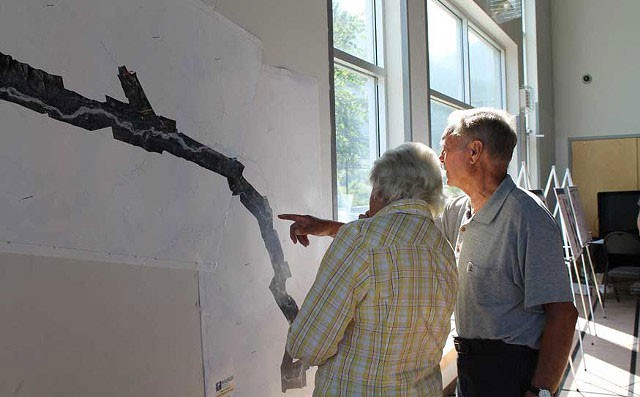At least 15 industrial, environmental, and construction projects in the Sea to Sky region, including the Upper Lillooet independent power project, are no longer subject to the federal government's environmental assessment scrutiny.
The environmental assessments (EA) of some 492 projects in British Columbia were dropped on July 6 as a result of a revised environmental assessment process, brought in as part of the Harper government's C-38 omnibus budget bill in June.
The types of projects are wide-ranging in scope. Proponents vary, and include First Nations, municipal governments, private companies and even private householder construction projects. Some had been in the process for months or even years.
A look through the list finds 15 projects from Howe Sound to Lillooet; some are subject to the provincial environmental assessment process, while others are not. Many do not have their exact locations noted, making it difficult to confirm their being in Sea to Sky region. They include:
Water supply, Fitzsimmons Creek, Burrard International Holdings Inc.; Subdivision and infrastructure, Stawamus I.R. 24; BC Hydro, Telus Electrical and Telecommunications Distribution Lines, Squamish First Nation; 2009-2013 Population differences in Rufous Hummingbirds; Lillooet Veneer Plant, Lillooet I.R. 1, T'it'q'et and Cayoose Creek First Nations; Gravel removal, Lillooet River; Pedestrian crossing, District of Squamish; Cheakamus Selective Harvesting of second-growth timber, Blocks 1 and 4, I.R. 11; Culliton Creek Hydroelectric Project, near Squamish; Independent power project, Upper Lillooet River — Boulder Creek —North Creek; Cheakamus Selective Harvesting of second-growth timber, Blocks 6, 9, and 10, I.R. 11; Sea to Sky Power Corp. Skookum Creek Clean Energy Project; Environmental Learning Centre Project, North Vancouver Outdoor School, Brackendale; Cheakamus Selective Harvesting of second-growth timber, Block 8, I.R. 11; Cheakamus Selective Harvesting of second-growth timber, Blocks 6, 9, and 10, I.R. 11 (which differs from the above similarly named project).
Natalie Closs, project manager for Innergex, the proponents of the Upper Lillooet IPP, said told directors at the Aug. 27 meeting of the Squamish-Lillooet Regional District board, that her company had been informed they were dropped from the wider federal process, though they still meet with federal Department of Fisheries and Transport Canada officials to gain two permits.
The provincial environmental assessment process remains, Closs told the board, and the company expected to hear the minister's decision on the Upper Lillooet River project by January 2013.
"We need authorization on those two permits from those two government agencies, that still hasn't changed. It's just the step in between... the federal government would do their own environmental assessment first and then a permit could be issued by DFO and Transport Canada," Closs said in an interview.
Closs said communications had shifted but was not alarmed by the changes.
"CEAA (Canadian Environment Assessment Agency) would coordinate a lot of correspondence between us and Transport Canada and DFO. That coordination role is gone, so we are doing a lot of coordination ourselves directly," she added. "And now EAO with the province has to also deal directly with those two agencies. "
While this does cost Innergex money, Closs said the amount was not significant
"It's just a matter of shifting roles," she said. "We knew it was coming, but I think we were surprised at how quick it was. It was basically a phone call on Friday afternoon saying, 'we've withdrawn from the process.' They already had their lists in place, I'm sure."
Gwen Barlee, policy director of the Wilderness Committee, said the federal government's dropping of the environment assessment process on relatively smaller-scale projects is "death by a thousand cuts."
She attended Innergex's open house for the Upper Lillooet project in Pemberton in July, and noted that no federal representatives were present. "For the life of me, I do not understand why we can't have those checks and balances," Barlee said.




